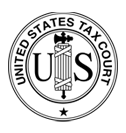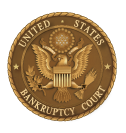Bankruptcy and Vehicles
A major concern when thinking of bankruptcy is the potential loss of your vehicle. The best solution depends on many factors such as the value of your car and the status of your loan.
You own your car free and clear
There are certain exemptions that can allow you to keep your car.
You are current on your vehicle
If your intention is to keep your vehicle, continue making your payments during the bankruptcy. You will need to sign a reaffirmation agreement where you re-sign on your vehicle loan. This reaffirmation agreement makes the debt you owe on your vehicle non-discharged in bankruptcy.
You are upside down on your vehicle
Do you owe more than you vehicle is worth.? You could be in this situation for several reasons, usually because you traded in a previous vehicle that had a loan balance. This also happens as vehicles depreciate. One benefit of bankruptcy is access to a special program that allows you to re-finance your vehicle for what it is currently worth. This “redemption” program may not be suitable for everyone.
You are behind on your vehicle payments
If you are behind on your payments and want to file Chapter 7 and keep your vehicle you will need to get current. Creditors will allow a reaffirmation agreement if you are current. If you are behind on your vehicle and want to keep it but do not have the funds to get current on your payments, then Chapter 13 may help you. Under Chapter 13 bankruptcy you can catch up and pay off your vehicle over 3-5 years.
Repossession
If the vehicle is repossessed and sold at auction you may have a “deficiency balance”. This is the amount owed after the amount received for your car at auction. This unsecured debt can be discharged through bankruptcy.
WE CAN HELP
Every situation is unique. Call us at Keegan & Company Attorneys, 513-752-3900, and schedule a free consultation at one of our convenient offices. Our free consultation with an experienced attorney will allow plenty of time to discuss your individual circumstance.







